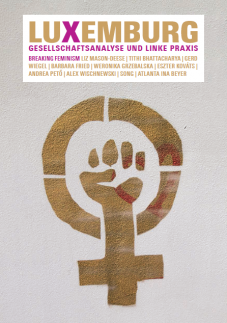| Holy Shit. Gender as a unifying theme for the Right

The AfD’s family and gender politics
Racism, hostility towards refugees and authoritarianism are crucial elements in the ideology of the AfD (“Alternative for Germany”), the new right-wing party which gained around 12% percent of the vote in the 2017 parliamentary elections. When people are scandalised by AfD statements and actions, the focus is usually on these topics. They are central to the public image of the party and its parliamentary group also because the AfD links nearly all policies to the issue of immigration. At the same time there is a polarity within the AfD between the neo-fascist right and the national-liberal centre, mostly around where it stands on the social question. The right of the party is ethnicizing the issue of social conflict, while the centre puts emphasis on a nationalist policy of market radicalism. This dichotomy that is also closely linked to power relations within the party is bridged and blurred by an overarching broad consensus in another field. The issue of family and gender politics is crucial for the party’s ideology and articulated in a fiercly antifeminist way.
| mehr »









